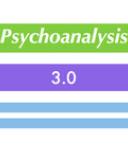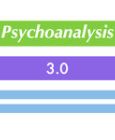
Fear
Creating a Magic Circle for Your Children and Yourself!
The healing alchemy of conversation
Posted May 2, 2011
By Jacqueline Ferraro, D.M.H.
Talking is as simple and natural as breathing; yet there is magic and power in the spoken word, that alchemy of speech in which painful secrets become healing conversation. Only through talking with each other can our fears take shape and become known. Through talking we can confront what frightens us and find ways to loosen its hold on us.

Cover of book: Where the Wild Things Are
When my daughter was growing up I worried about the unnamed, unspoken, and troublesome fears that can enter every child's life: squabbles with family and friends that can lead to momentary and unacceptable wishes for something to happen to them; frightening worries that can come from breaking family rules such as going to a particular park to play rather than coming right home from school; doing something that a child knows will upset or anger their parent. In short, all the "wild things" that can exist and grow in the darkness of the night or the dark and secret spaces of our minds, where imagination and fear can combine and render us scared and speechless.
As I thought about it, I knew all that darkness needed some light. So, harnessing the power of imagination, I created what we called the "Magic Circle." This was a special shared experience that my daughter could invoke whenever she wanted to tell me something but was afraid that I would get angry with her. In the "Magic Circle," which we drew in the air with our index fingers, literally encircling ourselves, anything could be said without fear of reprisal. In other words, no matter what she told me inside the "Magic Circle" I couldn't get mad at her and punish her.
Our "Circle" was not used lightly. She saved it for special moments when she really needed to talk. In the safety of the magical space we created together, my daughter told me about her fear that she had caused her friend to get hurt falling off a jungle gym at a park that was off-limits (the friend had slipped as they played on it).
She told me about her anger at a family friend's 11-year old son who was constantly bragging about himself and teasing her. One day, when he and his parents were visiting, my 11-year old daughter became so fed up with him that she secretly dumped a plate of spaghetti on his head (on the precious hair he spent hours grooming every day to look just so!). For months she was afraid to tell me what happened, especially since his parents suddenly became too busy to visit us again. But then the "Magic Circle" came to her rescue; it helped her summon the courage to tell me what had happened that last night they visited our home.
I am also aware of my own encounters with unspeakable wishes, feelings or events. (We all have them!) Sometimes these adult wild things lie in memory intruding in the quiet of the night to disturb sleep; at other times, they burst to the surface unbidden, perhaps summoned by a storyline on TV. Relief has come in a variety of ways: talking with my sister whose love and commitment to me is unwavering; discussing sensitive problems with a special friend who I can count on; and, for those especially troublesome issues, giving voice to them in a therapeutic setting where confidentiality, expertise, and impartiality create another kind of "Magic Circle."
Whether it's the darkness of the unspoken or the darkness of the night, amorphous "wild things" exist in that darkness. So, too, secrecy, which cannot be spoken and cannot be named, has a way of sustaining and building fear in all of us. And the best antidote, the most effective way to counter that fear, is through the light generated via the spoken word -especially, when it is said to someone else who is there to listen and to offer solace and understanding.
----------
About the Author:
Jacqueline Ferraro, D.M.H. is Faculty, Supervisor, Director of Curriculum, and Executive Committee member of the Child and Adolescent Psychotherapy Training Program, William Alanson White Institute; Supervisor of Psychotherapy, Associate Director of the Parent Center, and Faculty and Supervisor of the Eating Disorders, Compulsions and Addictions Service, William Alanson White Institute. Dr. Ferraro is in private practice, seeing children, adolescents and adults in Manhattan and New Jersey.
© 2011 Jacqueline Ferraro, All Rights Reserved
http://www.psychologytoday.com/blog/psychoanalysis-30

